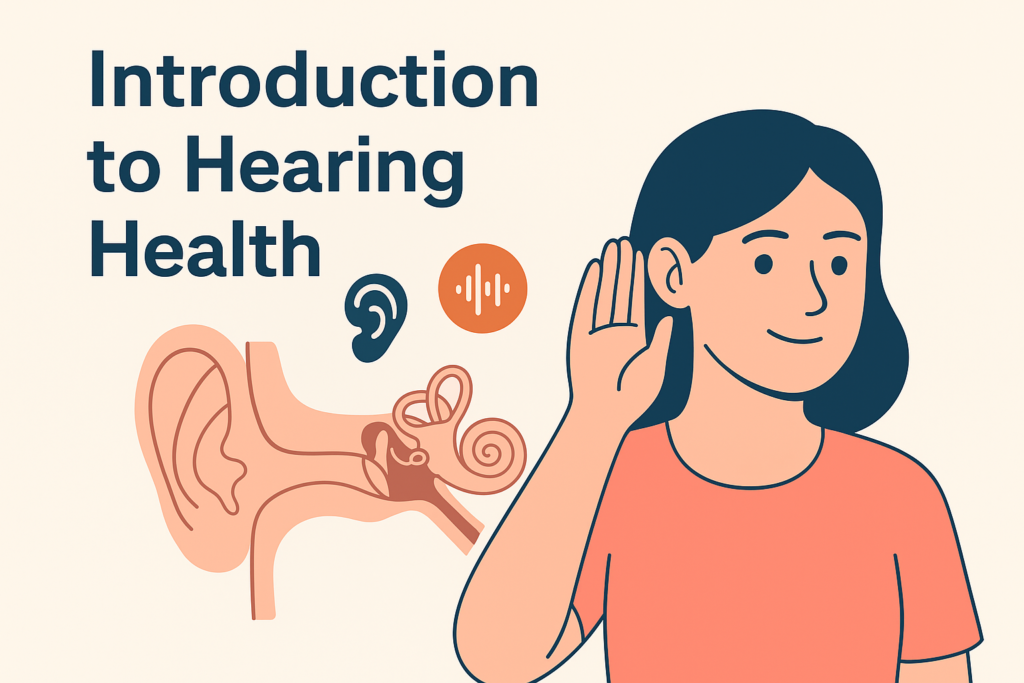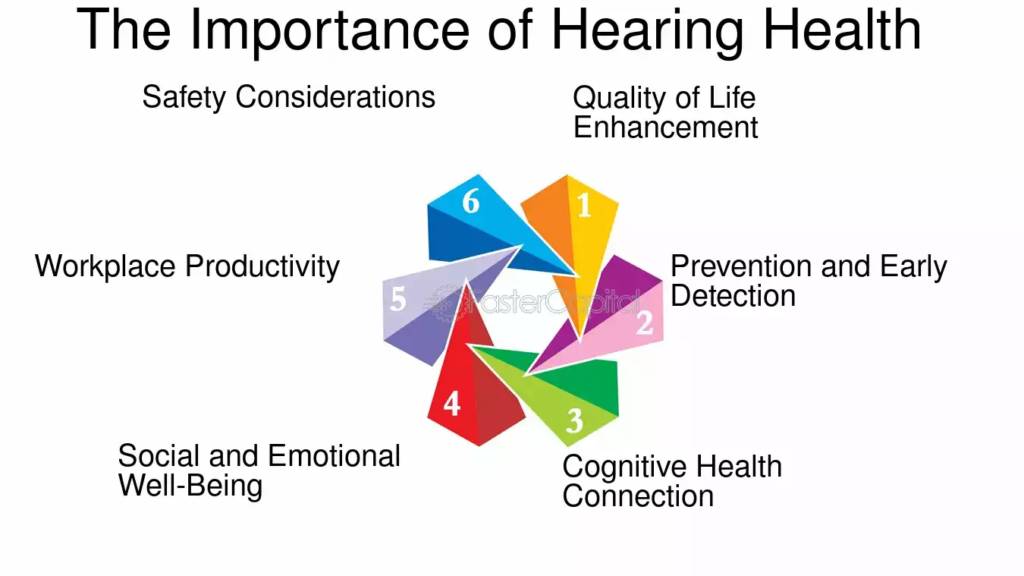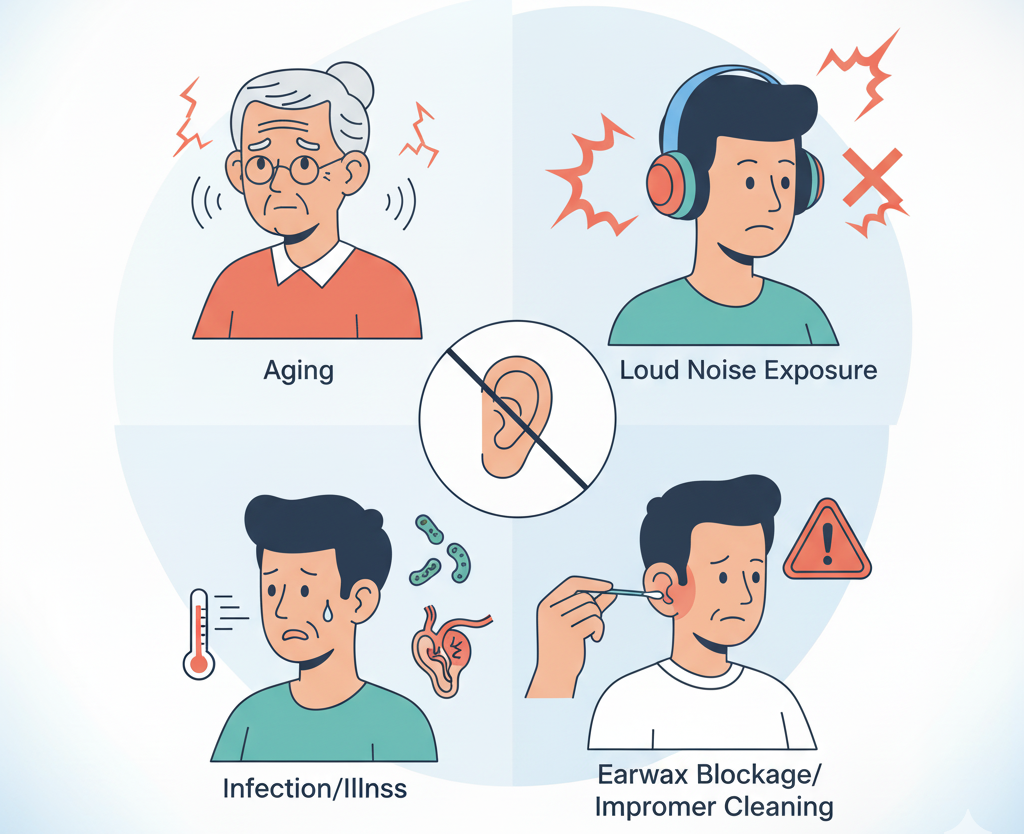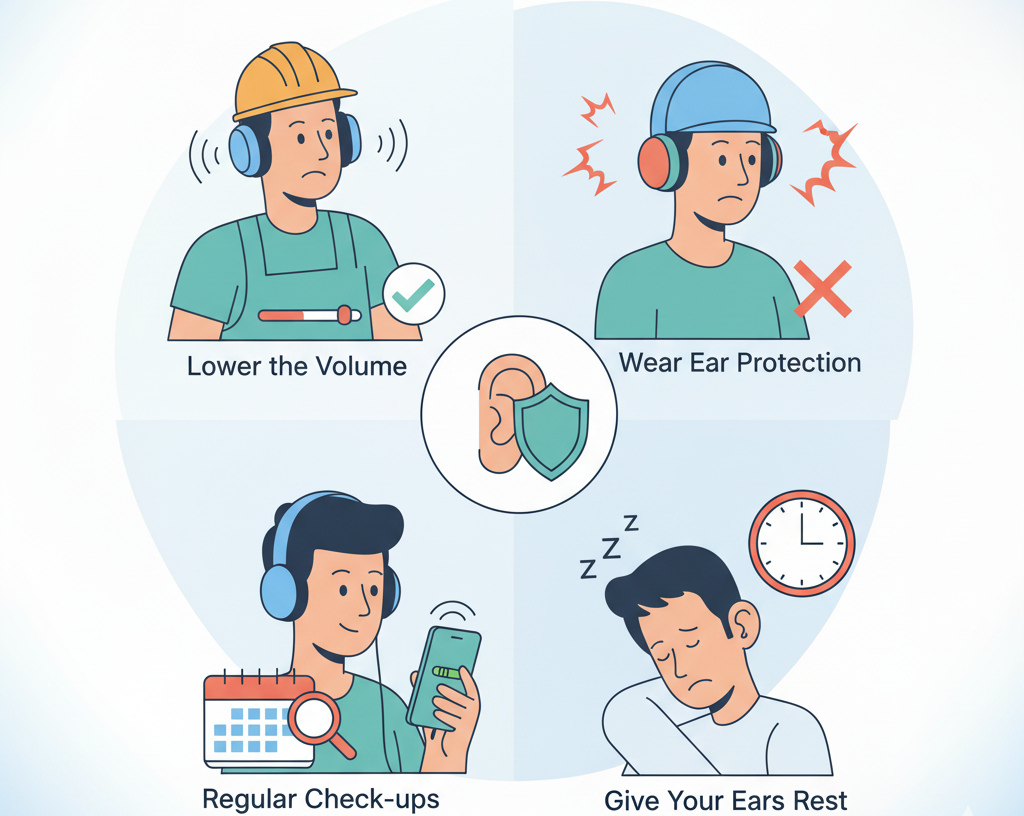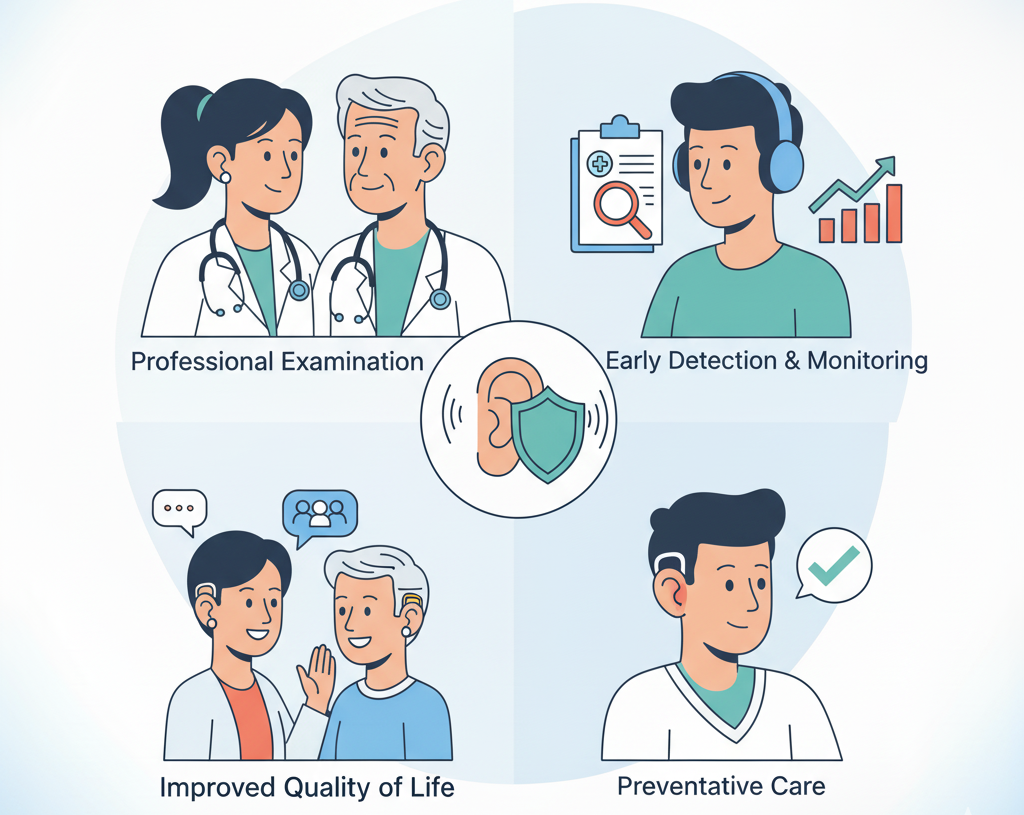Introduction to Hearing Health
Hearing health is often overlooked, yet it plays a vital role in our daily lives. It affects how we communicate, engage with others, and even enhances our overall well-being. Understanding the importance of preserving this sense can lead to improved quality of life.
Many people take their hearing for granted until they face challenges. Noise pollution, aging, and exposure to loud sounds are just a few factors that can contribute to hearing loss. Awareness is the first step toward protecting your auditory system.
Investing time in learning about hearing health empowers you to make informed choices. From simple lifestyle adjustments to advanced technology solutions, there are numerous ways to maintain healthy hearing throughout your life. Prioritizing this aspect of wellness encourages better relationships and enriches experiences around us.
Hearing is one of our most precious senses, yet it often takes a backseat in the realm of health priorities. Think about those moments when you hear your child giggle or the rustle of leaves on a breezy day—those sounds enrich our lives and connect us to the world around us. But as we navigate through life, various factors can threaten our ability to enjoy these simple pleasures. That’s why understanding how to keep healthy hearing should be at the forefront of our wellness journey.
The Importance of Hearing Health
Hearing health plays a crucial role in our overall well-being. Sound shapes how we interact with the world and communicates emotions, thoughts, and experiences. When hearing diminishes, it can lead to isolation and affect relationships.
Untreated hearing loss often contributes to cognitive decline. Studies have shown that individuals with impaired hearing may experience increased risks of depression and anxiety. The sounds we take for granted—voices, music, nature—are essential for mental stimulation.
Additionally, good hearing enhances safety. Being aware of your surroundings allows you to respond quickly to potential dangers like traffic or alarms. This awareness is vital not just for personal safety but also for enjoying everyday activities without fear.
Investing time into understanding how to keep healthy hearing empowers us all. It’s about more than just avoiding discomfort; it’s about enriching lives through connection and engagement with the vibrant sounds around us.
Common Causes of Hearing Loss
Hearing loss can stem from various factors, many of which are often overlooked. One common culprit is exposure to loud noises. Whether it’s concerts or construction sites, prolonged noise can damage the delicate hair cells in your inner ear.
Aging also plays a significant role. As we grow older, it’s natural for hearing abilities to decline due to changes in the auditory system. Certain medical conditions contribute as well. Infections like otitis media or diseases such as diabetes can impact hearing health significantly.
Medications may have side effects that harm your ears too. Some antibiotics and chemotherapy drugs are known ototoxic agents, meaning they can damage hearing if not monitored carefully.
Genetics cannot be ignored either; hereditary factors may increase susceptibility to hearing loss later in life. Understanding these causes helps pave the way for better preventive measures and healthier hearing practices.
Tips for Protecting Your Hearing
Protecting your hearing starts with awareness. Be mindful of the volume levels around you, especially in noisy environments. If it feels too loud, it probably is.
Use ear protection when attending concerts or working in loud settings. Simple earplugs can significantly reduce harmful noise exposure without sacrificing sound quality.
Limit the time spent listening to music through headphones or earbuds. Opt for lower volumes and choose over-ear styles that naturally block out background noise.
Take regular breaks from any activity involving intense audio consumption. A few minutes of silence can rejuvenate your ears. Stay active and maintain a healthy lifestyle. Good overall health supports better hearing function as well.
Educate those around you about the importance of hearing care too. Share tips and encourage friends and family to join you in adopting healthier habits for their auditory wellbeing.
The Importance of Regular Check-Ups
Regular check-ups play a crucial role in maintaining your hearing health. Just like any other aspect of wellness, early detection can make all the difference.
Hearing changes can be subtle and easy to overlook at first. A professional evaluation helps identify issues before they escalate. By visiting an audiologist or hearing specialist, you gain insights into your auditory system’s condition.
These appointments allow for personalized advice tailored to your lifestyle and environment. You may learn about specific risks linked to noise exposure or discover protective strategies suited to your daily routine.
Moreover, regular visits provide opportunities for follow-up care if needed. Hearing aids, therapies, or assistive technologies can enhance quality of life significantly when introduced promptly.
Prioritizing these check-ups means taking proactive steps toward preserving healthy hearing throughout life’s stages. Making them part of your healthcare routine ensures that you’re always tuned in to what matters most—your well-being.
Seeking Solutions: Discover How Audifort Can Help
In the quest for optimal hearing health, Audifort emerges as a beacon of hope. Designed with both innovation and compassion at its core, Audifort offers tailored solutions that cater to individual needs. Whether you’re grappling with the early signs of hearing loss or simply seeking to enhance your auditory experience in daily life, this cutting-edge technology promises not just clarity but also comfort.
Imagine engaging in conversations without straining or missing important nuances; envision enjoying music as it was meant to be heard—rich and vibrant. With features like adaptive sound processing and noise cancellation, Audifort ensures that every sound is captured authentically, allowing users to reconnect with their world.
Moreover, the user-friendly interface invites effortless adjustments on-the-go, empowering individuals to take control of their listening environment. Beyond devices alone, Audifort fosters a community focused on education and support—a vital resource for those navigating hearing challenges.
This holistic approach positions Audifort not merely as a product but as an ally in safeguarding what matters most: our ability to listen deeply and engage meaningfully with life’s symphony.
Technological Solutions for Hearing Loss
Technology has made significant strides in addressing hearing loss. Hearing aids have become more advanced, offering features like Bluetooth connectivity and noise cancellation. These devices can seamlessly connect to smartphones, allowing users to stream music and phone calls directly.
Cochlear implants provide another option for those with severe hearing impairment. They work by bypassing damaged hair cells in the inner ear, sending sound signals directly to the auditory nerve. This technology opens up new worlds of sound for many individuals.
There are also smartphone applications that help manage hearing health. From amplifying sounds in real-time to providing personalized sound profiles, these apps empower users with greater control over their listening experience.
Assistive listening devices enhance audio clarity in various environments—be it theaters or crowded restaurants. Embracing these innovations can greatly improve quality of life for those facing hearing challenges.
Lifestyle Habits for Maintaining Good Hearing Health
Adopting healthy lifestyle habits can significantly impact your hearing health. Regular exercise improves blood circulation, which is vital for maintaining the delicate structures in your ears.
A balanced diet rich in vitamins and minerals supports auditory function. Foods high in omega-3 fatty acids, antioxidants, and vitamins A, C, and E are particularly beneficial.
Limiting noise exposure is crucial. Use earplugs or noise-canceling headphones when in loud environments. This simple step can prevent unnecessary stress on your hearing.
Hydration plays a role too. Drinking plenty of water keeps tissues hydrated and helps maintain optimal ear function.
Additionally, managing stress through mindfulness or yoga can improve overall well-being, including auditory health. Prioritizing sleep also aids recovery processes that protect hearing capability over time.
Engaging with music at moderate volumes stimulates the brain while keeping ears safe from damage—an enjoyable way to nurture your soundscape!
Conclusion: Taking Action for Your Hearing Health
Taking action for your hearing health is essential. Being proactive can make a significant difference in preserving your auditory function. Start by understanding the importance of hearing health and the common causes of loss, such as exposure to loud noises or aging.
Adopt simple yet effective tips for protecting your hearing. Regular check-ups with a healthcare professional can help catch any issues early on. Embrace technology designed to assist those experiencing hearing loss; there are many innovative solutions available today.
Additionally, cultivating healthy lifestyle habits, like avoiding smoking and maintaining a balanced diet, contributes significantly to good hearing health. These steps empower you to take charge of your auditory well-being.
Prioritize your ears just as you would other aspects of your overall health. By educating yourself and making informed choices, you’re investing in years of listening joyfully and communicating effectively with those around you.

